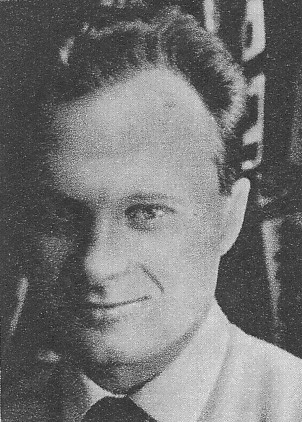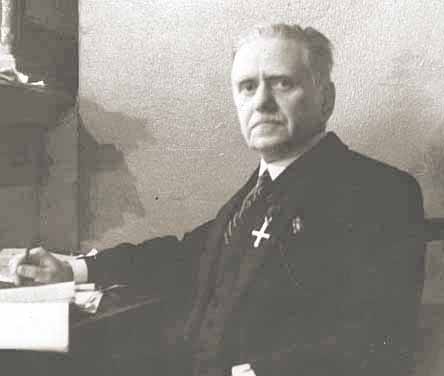|
Pact Ribbentrop - Beck
''Pact Ribbentrop - Beck'' (Polish: ''Pakt Ribbentrop - Beck'') is an alternative history novel by the Polish journalist and writer Piotr Zychowicz. The book, whose full title is ''Pact Ribbentrop - Beck, or How Poles Could Have Defeated the Soviet Union alongside the Third Reich'' (Polish: ''Pakt Ribbentrop - Beck czyli jak Polacy mogli u boku III Rzeszy pokonać Związek Radziecki''), was published in 2012 by Dom Wydawniczy Rebis from Poznań. Zychowicz argues that the government of the Second Polish Republic should have accepted Adolf Hitler's offer of a joint Polish-German attack on the Soviet Union, which would have together captured Moscow. "Beck" refers to Józef Beck, the 1930s Polish foreign minister. "Ribbentrop" refers to Joachim von Ribbentrop, the German foreign minister. Background Piotr Zychowicz stated in a November 2012 interview: "This book is my answer to the question that all Poles ask. And the question is: did we have to bungle up World War II so badly? Did ... [...More Info...] [...Related Items...] OR: [Wikipedia] [Google] [Baidu] |
Polish Language
Polish (Polish: ''język polski'', , ''polszczyzna'' or simply ''polski'', ) is a West Slavic language of the Lechitic group written in the Latin script. It is spoken primarily in Poland and serves as the native language of the Poles. In addition to being the official language of Poland, it is also used by the Polish diaspora. There are over 50 million Polish speakers around the world. It ranks as the sixth most-spoken among languages of the European Union. Polish is subdivided into regional dialects and maintains strict T–V distinction pronouns, honorifics, and various forms of formalities when addressing individuals. The traditional 32-letter Polish alphabet has nine additions (''ą'', ''ć'', ''ę'', ''ł'', ''ń'', ''ó'', ''ś'', ''ź'', ''ż'') to the letters of the basic 26-letter Latin alphabet, while removing three (x, q, v). Those three letters are at times included in an extended 35-letter alphabet, although they are not used in native words. The traditional ... [...More Info...] [...Related Items...] OR: [Wikipedia] [Google] [Baidu] |
Anglo-Polish Military Alliance
The military alliance between the United Kingdom and Poland was formalised by the Anglo-Polish Agreement in 1939, with subsequent addenda of 1940 and 1944, for mutual assistance in case of a military invasion from Nazi Germany, as specified in a secret protocol.Keith Sword. "British Reactions to the Soviet Occupation of Eastern Poland in September 1939". ''The Slavonic and East European Review'', Vol. 69, No. 1 (Jan., 1991), pp. 81-101. Background The United Kingdom had been attempting to create a four-way alliance to contain Germany, with France, Poland and the Soviet Union. Poland's Jozef Beck was disturbed by the prospect of any alliance with the Soviets. He also feared the reaction of Berlin to the four-way alliance, which might be seen as the encirclement of Germany. Beck, however, saw an opportunity and so he proposed a secret agreement on consultation to British Foreign Secretary Lord Halifax that was received on 24th March, 1939. When questioned by Halifax, Polish Foreign ... [...More Info...] [...Related Items...] OR: [Wikipedia] [Google] [Baidu] |
Grzegorz Górski
Grzegorz (german: Falkenstein) is a village in the administrative district of Gmina Chełmża, within Toruń County, Kuyavian-Pomeranian Voivodeship, in north-central Poland. It lies approximately north-east of Chełmża and north of Toruń )'' , image_skyline = , image_caption = , image_flag = POL Toruń flag.svg , image_shield = POL Toruń COA.svg , nickname = City of Angels, Gingerbread city, Copernicus Town , pushpin_map = Kuyavian-Pom .... References Grzegorz {{Toruń-geo-stub ... [...More Info...] [...Related Items...] OR: [Wikipedia] [Google] [Baidu] |
Jerzy Łojek
Jerzy Łojek (3 September 1932 – 7 October 1986) was a Polish historian and opposition activist in People's Republic of Poland. He specialized in European, Polish and Russian history of 17th to 20h centuries. Some of his works were first published underground. The communist government prevented him from receiving professor Professor (commonly abbreviated as Prof.) is an Academy, academic rank at university, universities and other post-secondary education and research institutions in most countries. Literally, ''professor'' derives from Latin as a "person who pr ...ship. References * Paweł Janowski, ''Łojek Jerzy, 1932-1986, historyk, publicysta'', :''Encyklopedia Katolicka'', Lublin 2006, t. XI, kol. 493. 1932 births 1986 deaths Burials at Powązki Cemetery Polish dissidents 20th-century Polish historians Polish male non-fiction writers Writers from Warsaw {{Poland-historian-stub ... [...More Info...] [...Related Items...] OR: [Wikipedia] [Google] [Baidu] |
Władysław Studnicki
Władysław Gizbert-Studnicki, a Polish politician and publicist, was born on 15 November 1867 in Dünaburg, Vitebsk Governorate, Russian Empire (current Latvia), into a Polish szlachta family of the Kresy region. Both his parents fought in the January Uprising. Throughout his life, Studnicki was famous for his strongly pro-German stance, and in the Polish People's Republic all his books were banned from publication. He was the older brother of historian Wacław Studnicki. He died on 10 January 1953 in London. Before 1918 His political career started in late 19th century at the Kronenberg Trade School in Warsaw, in the Socialist organization Proletariat, for which Russian authorities sent him first to the Warsaw Citadel (7 December 1888), and then to Eastern Siberia, where he spent six years. After returning from exile in 1896, he became activist of the Polish Socialist Party, but left it, choosing the national movement, in which he was the main ideologist. However, unhappy ... [...More Info...] [...Related Items...] OR: [Wikipedia] [Google] [Baidu] |
Stanisław Mackiewicz
Stanisław "Cat" Mackiewicz (18 December 1896 in Saint Petersburg, Russia – 18 February 1966 in Warsaw, Poland) was a conservative Polish writer, journalist and monarchist. Interwar journalist Adolf Maria Bocheński called him the foremost political journalist of the interbellum Second Polish Republic. Life Mackiewicz was born into a Polish family that had historically used the '' Bożawola'' coat-of-arms. Mackiewicz joined the Polish Military Organisation in 1917 and served as a volunteer in the Polish Army during the Polish-Soviet War of 1919–21. He published and the editor-in-chief of the independent Wilno (Vilnius) periodical titled "Słowo," wholly financially supported by the noble families of the former Grand Duchy of Lithuania. He actively promoted the idea of the so-called Jagellonian Poland, i.e., return to the Polish–Lithuanian Commonwealth style of governance in Eastern Europe. He supported Józef Piłsudski [...More Info...] [...Related Items...] OR: [Wikipedia] [Google] [Baidu] |
Adolf Bocheński
Adolf (also spelt Adolph or Adolphe, Adolfo and when Latinised Adolphus) is a given name used in German-speaking countries, Scandinavia, the Netherlands and Flanders, France, Italy, Spain, Portugal, Latin America and to a lesser extent in various Central European and East European countries with non-Germanic languages, such as Lithuanian Adolfas and Latvian Ādolfs. Adolphus can also appear as a surname, as in John Adolphus, the English historian. The female forms Adolphine and Adolpha are far more rare than the male names. The name is a compound derived from the Old High German ''Athalwolf'' (or ''Hadulf''), a composition of ''athal'', or ''adal'', meaning "noble" (or '' had(u)''-, meaning "battle, combat"), and ''wolf''. The name is cognate to the Anglo-Saxon name '' Æthelwulf'' (also Eadulf or Eadwulf). The name can also be derived from the ancient Germanic elements "Wald" meaning "power", "brightness" and wolf (Waldwulf). Due to negative associations with Adolf Hitle ... [...More Info...] [...Related Items...] OR: [Wikipedia] [Google] [Baidu] |
Andrzej Wielowieyski
Andrzej is the Polish form of the given name Andrew. Notable individuals with the given name Andrzej * Andrzej Bartkowiak (born 1950), Polish film director and cinematographer * Andrzej Bobola, S.J. (1591–1657), Polish saint, missionary and martyr * Andrzej Chyra (born 1964), Polish actor * Andrzej Czarniak (1931–1985), Polish alpine skier * Andrzej Duda (born 1972), Polish 6th president * Andrzej Jajszczyk, Polish scientist * Andrzej Kmicic, fictional protagonist of Henryk Sienkiewicz's novel ''The Deluge'' * Andrzej Kokowski (born 1953), Polish archaeologist * Andrzej Krauze (born 1947), Polish-British cartoonist and illustrator * Andrzej Leder (born 1960), Polish philosopher and psychotherapist * Andrzej Mazurczak (born 1993), Polish basketball player * Andrzej Mleczko (born 1949), Polish illustrator * Andrzej Nowacki (born 1953), Polish artist * Andrzej Paczkowski (born 1938), Polish historian * Sir Andrzej Panufnik (1914–1991), Polish composer * Andrzej Person, Polis ... [...More Info...] [...Related Items...] OR: [Wikipedia] [Google] [Baidu] |
Stalin
Joseph Vissarionovich Stalin (born Ioseb Besarionis dze Jughashvili; – 5 March 1953) was a Georgian revolutionary and Soviet political leader who led the Soviet Union from 1924 until his death in 1953. He held power as General Secretary of the Communist Party of the Soviet Union (1922–1952) and Chairman of the Council of Ministers of the Soviet Union (1941–1953). Initially governing the country as part of a collective leadership, he consolidated power to become a dictator by the 1930s. Ideologically adhering to the Leninist interpretation of Marxism, he formalised these ideas as Marxism–Leninism, while his own policies are called Stalinism. Born to a poor family in Gori in the Russian Empire (now Georgia), Stalin attended the Tbilisi Spiritual Seminary before joining the Marxist Russian Social Democratic Labour Party. He edited the party's newspaper, ''Pravda'', and raised funds for Vladimir Lenin's Bolshevik faction via robberies, kidnappings and protection rac ... [...More Info...] [...Related Items...] OR: [Wikipedia] [Google] [Baidu] |
Eastern Front (World War II)
The Eastern Front of World War II was a Theater (warfare), theatre of conflict between the European Axis powers against the Soviet Union (USSR), Polish Armed Forces in the East, Poland and other Allies of World War II, Allies, which encompassed Central Europe, Eastern Europe, Northern Europe, Northeast Europe (Baltic states, Baltics), and Southeast Europe (Balkans) from 22 June 1941 to 9 May 1945. It was known as the Great Patriotic War (term), Great Patriotic War in the Soviet Union – and still is in some of its successor states, while almost everywhere else it has been called the ''Eastern Front''. In present-day German and Ukrainian historiography the name German-Soviet War is typically used. The battles on the Eastern Front of the Second World War constituted the largest military confrontation in history. They were characterised by unprecedented ferocity and brutality, wholesale destruction, mass deportations, and immense loss of life due to combat, starvation, expos ... [...More Info...] [...Related Items...] OR: [Wikipedia] [Google] [Baidu] |
Polish Army
The Land Forces () are the land forces of the Polish Armed Forces. They currently contain some 62,000 active personnel and form many components of the European Union and NATO deployments around the world. Poland's recorded military history stretches back a millennium – since the 10th century (see List of Polish wars and History of the Polish Army). Poland's modern army was formed after Poland regained independence following World War I in 1918. History 1918–1938 When Poland regained independence in 1918, it recreated its military which participated in the Polish–Soviet War of 1919–1921, and in the two smaller conflicts ( Polish–Ukrainian War (1918–1919) and the Polish–Lithuanian War (1920)). Initially, right after the First World War, Poland had five military districts (1918–1921): * Poznań Military District (Poznański Okręg Wojskowy), HQ in Poznań * Kraków Military District (Krakowski Okręg Wojskowy), HQ in Kraków * Łódź Military District (Łódz ... [...More Info...] [...Related Items...] OR: [Wikipedia] [Google] [Baidu] |




